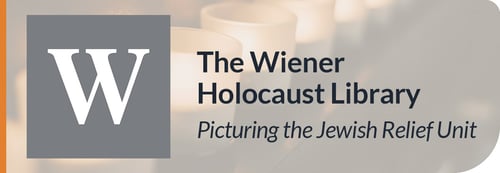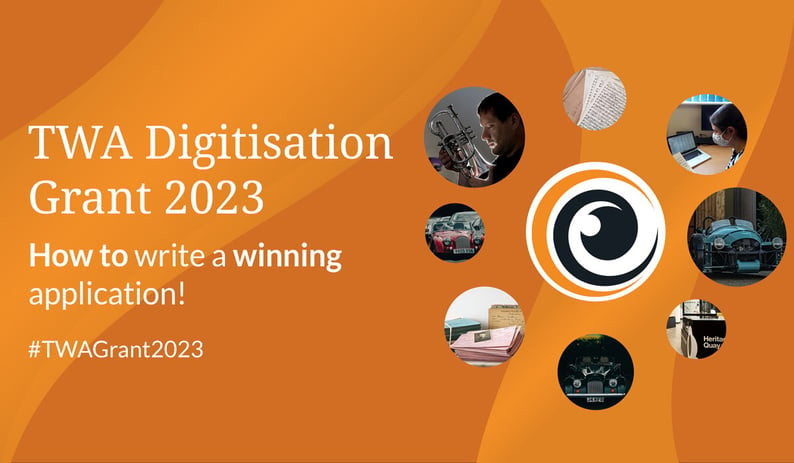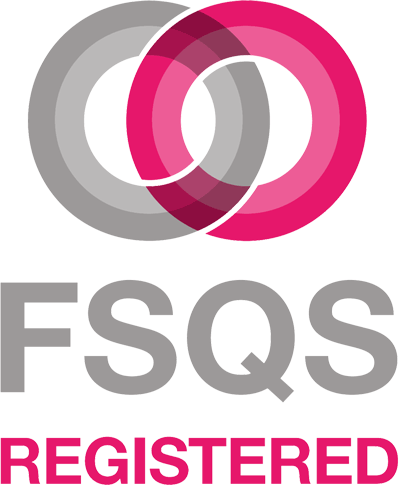APPLY NOW: Find the grant application form & funding details here
Writing a winning grant application - 7 recommendations!
On 19th June we were thrilled to declare the TWA Digitisation Grant 2023 open, welcoming it into its sixth successful year! In that time it has supported over 110 heritage organisations, injecting a phenomenal £108,000 of financial support into the heritage sector. This has been achieved through a series of main grants and match funding opportunities.
Every year we celebrate the lucky winners and look forward to safeguarding ever more precious archives, seeing them join a digital landscape where the opportunities are endless. Our main grant winners for 2022 consisted of the wonderful Brass Bands England, Merton Heritage & Local Studies Centre, and The Wiener Holocaust Library. And very deserving organisations they were too. But, how did they get the attention of our judges? For the first time, we share some valuable insight, gained directly from the winning applications and the rich data these contain. Careful analysis of our judges' feedback and scores reveals a number of clear indicators - 7 in fact - which we believe can be used to support an application with a significantly high chance of success.
7 recommendations for a winning application:
- All four of last year’s winning applications were strong. That is to say, they left little room for doubt. Having confidence in the archive you are applying for is key to how well you are likely to present it to others. Our winning applicants clearly understood and identified the value contained within their collections and the specific impact that digitisation would have for both their archive and the wider community.
- They were also comprehensive in the telling of their story, highlighting where they had already gained the traction and support that would serve to benefit them beyond digitisation and into the next exciting stage of their digital and outreach journey. Our winning organisations were unquestionably experts in their archive material, talking persuasively in order to inspire and excite our judges, and presenting their collections in the very best light.
- Highlighting archives with national, international, and global significance is an important factor. If this is the case for yours, say so, demonstrating how and why. Last year’s organisations were very self-aware, able to identify who their audiences were and where they would be found. That is not to say that an archive cannot exist within its own, unique, and much smaller world. It’s about how well you can illustrate this world and the influence your archive has within it.
- Where material is at risk this should be specified. First and foremost, protection and preservation is what digitisation is all about, especially where records are highly unique. If your archive is in danger then be sure to include this, highlighting to what extent and explaining how this has come about.
- Give careful and overt consideration to the judging criteria throughout. Our winning organisations did just this, scoring highly across the board as a result. The more points you can score on every single one of the criteria, the higher your chances of success. For Debbie Cooper it’s really all about, “understanding the content and the context of your project.”
- Tell us about your digitisation experience to date. You don’t have to be a seasoned digitiser to apply and, in fact, we have had many wonderful first-time projects. But, if you have digitised collections before, then why not highlight these instances to demonstrate an understanding and appreciation for the process? Like some of our winning organisations, you may know first hand what can be achieved beyond the capture of your physical items, inspiring confidence for our judges.
- Consider the impact digitisation could have on your entire archive, not just the project for which you have applied. We love joined-up thinking (and doing), it makes for greater success, and that means our funding provision is suddenly transformed into a gift that keeps on giving. If you are able to look at the bigger picture and it makes your project look even more exciting then definitely tell us about it!
Here's what some of last year's winners had to say...


We are so grateful to have been awarded a TWA Digitisation Grant and to have the opportunity to digitise and make available our unique collection of photographs relating to the work of the Jewish Relief Unit during and after the Holocaust. Many of the photographs have never been published before and they fundamentally challenges existing views of what postwar British humanitarianism looked like. Given their historic importance, we are looking forward to working with TownsWeb Archiving to make them as accessible to the public as possible.
Leah Sidebotham (Digital Asset Manager)
What does a winning application look like?
We thought it might be helpful to not just talk about what a successful application looks like, but actually see one in black and white. A couple of our previously successful organisations have very kindly agreed to let us share their winning application forms with you, for the purposes of opening up the process and making it even more accessible.
We would like to give special thanks to Brass Bands England, The Wiener Holocaust Library and Merton Heritage for their contribution to this year’s supporting grant resources. Click the links below to see how they won over our judges and successfully gained funding from the TWA Digitisation Grant:
Sample Application: Brass Bands England
Sample Application: The Wiener Holocaust Library
Sample Application: Merton Heritage & Local Studies Centre
It's not too late to apply!
Watch our video to find out more:
APPLY NOW: Find the grant application form & funding details here
Access the application form here and be sure to contact us for any digitisation grant-related queries and questions. All completed applications should be submitted by 28th July 2023 at 11.59pm (BST). The winners will be announced on 30-31 August at the ARA Annual Conference.
Best of luck from all at TownsWeb Archiving!



 USE OUR ONLINE
USE OUR ONLINE








